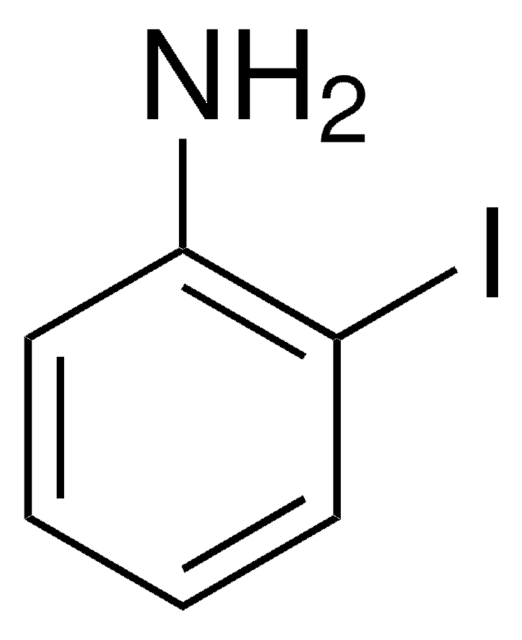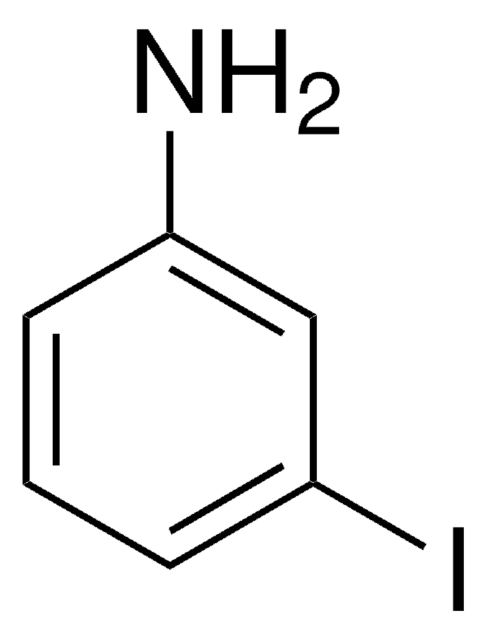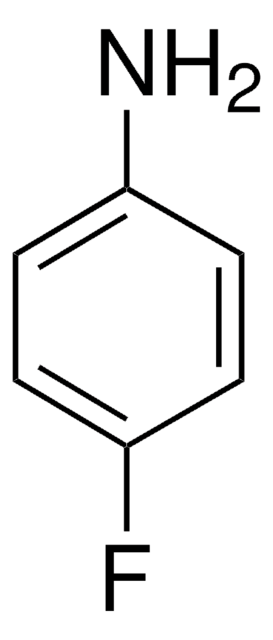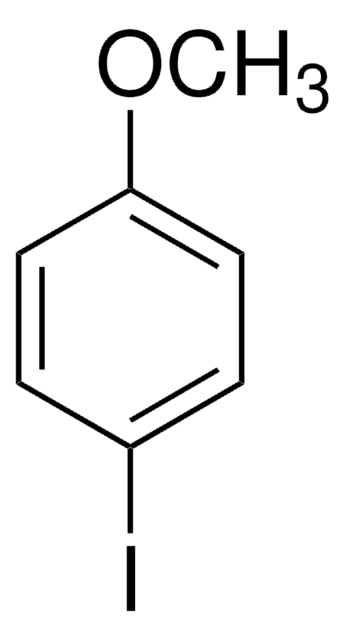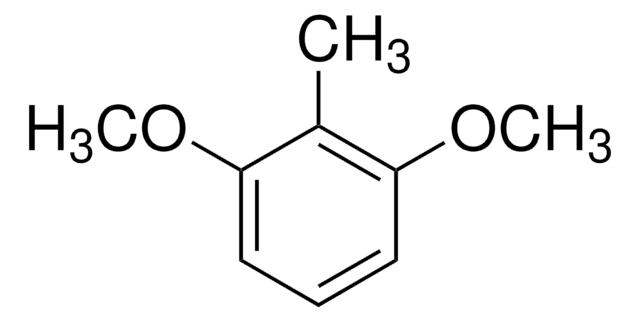About This Item
Recommended Products
Quality Level
Assay
98%
form
solid
mp
61-63 °C (lit.)
solubility
H2O: slightly soluble
alcohol: freely soluble
chloroform: freely soluble
diethyl ether: freely soluble
SMILES string
Nc1ccc(I)cc1
InChI
1S/C6H6IN/c7-5-1-3-6(8)4-2-5/h1-4H,8H2
InChI key
VLVCDUSVTXIWGW-UHFFFAOYSA-N
Looking for similar products? Visit Product Comparison Guide
General description
Application
Signal Word
Warning
Hazard Statements
Precautionary Statements
Hazard Classifications
Acute Tox. 4 Oral - Eye Irrit. 2 - Skin Irrit. 2 - STOT SE 3
Target Organs
Respiratory system
Storage Class Code
11 - Combustible Solids
WGK
WGK 3
Flash Point(F)
Not applicable
Flash Point(C)
Not applicable
Personal Protective Equipment
Certificates of Analysis (COA)
Search for Certificates of Analysis (COA) by entering the products Lot/Batch Number. Lot and Batch Numbers can be found on a product’s label following the words ‘Lot’ or ‘Batch’.
Already Own This Product?
Find documentation for the products that you have recently purchased in the Document Library.
Customers Also Viewed
Our team of scientists has experience in all areas of research including Life Science, Material Science, Chemical Synthesis, Chromatography, Analytical and many others.
Contact Technical Service

